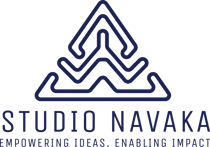Week 1 - Ideation
Ideation is essential when starting up; it’s the spark that transforms concepts into impactful solutions. Through structured ideation, startups identify unique value propositions and align their offerings with real market needs. This critical first step lays the foundation for innovation, differentiation, and sustainable growth. Without effective ideation, even the best resources can fall short of achieving success.
Week 2 - Domain Understanding & Validation
Domain understanding is crucial for startup success, as it brings depth and relevance to product development, strategy and idea validation. A strong grasp of the industry landscape helps identify real pain points, anticipate trends, and tailor solutions that truly resonate with the target market. With solid domain expertise, startups can differentiate themselves, make informed decisions, and accelerate their path to market fit. Without it, even the most innovative ideas risk falling short in execution.
Week 3 - Market Research
Market research is the compass that guides startups through the fog of uncertainty, revealing whether their innovative solutions align with genuine market needs or merely solve imaginary problems. By gathering both quantitative data and qualitative insights, entrepreneurs can validate their assumptions about customer pain points, market size, and competitive landscape before investing precious resources. This critical intelligence helps startups refine their product-market fit, optimize pricing strategies, and identify the most promising customer segments to target first. Without thorough market research, startups risk building solutions in search of problems, potentially leading to wasted time, depleted capital, and missed opportunities in adjacent markets.
Week 4 - Value Preposition & Business Modeling
A clear value proposition and strong business model are vital for any startup to thrive. They define how a product uniquely meets customer needs and outline the pathway to generate sustainable revenue. By honing these elements, startups create compelling reasons for customers to choose their solution over competitors. Without a well-crafted value proposition and model, even great ideas struggle to gain traction and deliver impact.
Week 5 - Revenue Operations
Revenue operations are critical for new products and startups, as they unify sales, marketing, and customer success efforts to maximize revenue growth. By streamlining processes and data across teams, RevOps ensures that every customer interaction is optimized, and growth opportunities are fully leveraged. This approach enhances efficiency, clarity, and scalability, which are essential for early-stage success. Without effective revenue operations, startups risk misaligned efforts and missed revenue potential.
Week 6 - Creating Hooks & Story Telling
Storytelling and creating compelling hooks are vital for new products and startups, as they capture attention and emotionally connect with the audience. A strong narrative transforms a product from a simple solution into an inspiring journey, helping customers see its value in their lives. Well-crafted hooks spark curiosity and engagement, paving the way for brand loyalty and advocacy. Without these elements, even innovative products may struggle to resonate and grow.
Week 7 - Business & Technology Roadmap
Creating business and technology roadmaps for your startup is crucial as they provide a clear vision and strategic direction, aligning all stakeholders. They help in identifying milestones and setting realistic timelines, which in turn facilitates better resource allocation and risk management. By anticipating future needs and challenges, these roadmaps ensure your startup stays adaptable and competitive. Ultimately, they transform visionary ideas into actionable steps, driving sustained growth and innovation.
Week 8 - Pitch Deck, Elevator Pitch
A pitch deck and elevator pitch are essential tools for conveying an idea’s value quickly and effectively. The pitch deck provides a structured overview of the concept, market opportunity, and growth potential, while the elevator pitch distills this into a powerful, concise statement. Together, they enable founders to capture attention, build credibility, and spark investor interest. Without a compelling pitch, even strong ideas may fail to gain the traction they deserve.
Tangible coaching for Entrepreneurs
Studio NAVAKA
Tailored product management for startups and SMEs.
Coaching
Join the mailing list
contact@navakastudio.com
+61.439 221 811
© 2025. All rights reserved.
+91.907 0 907 907
+1.816.666.8255

